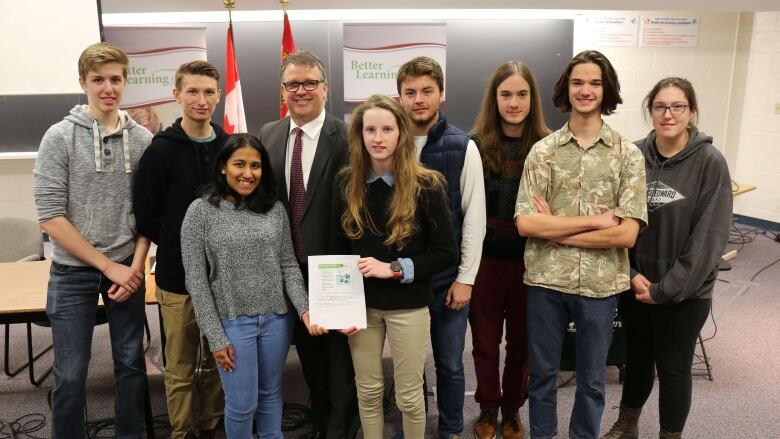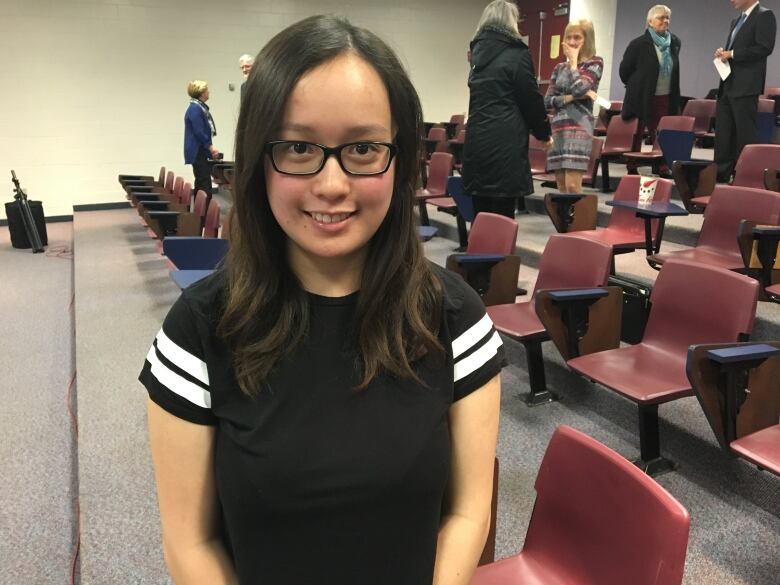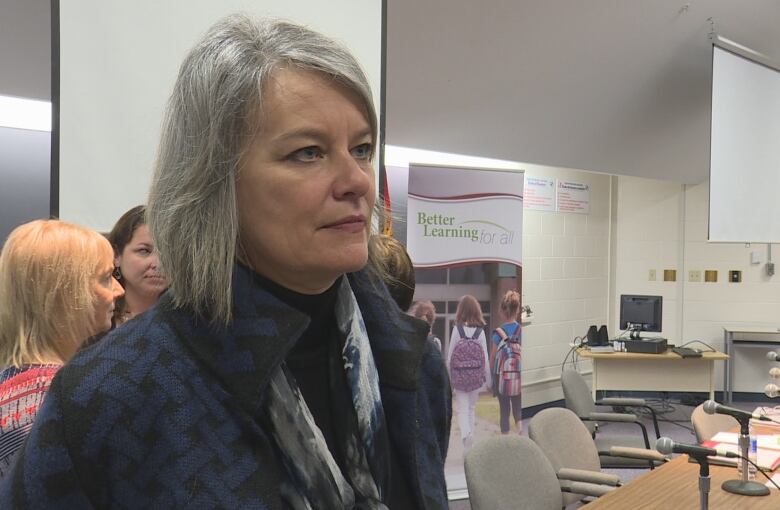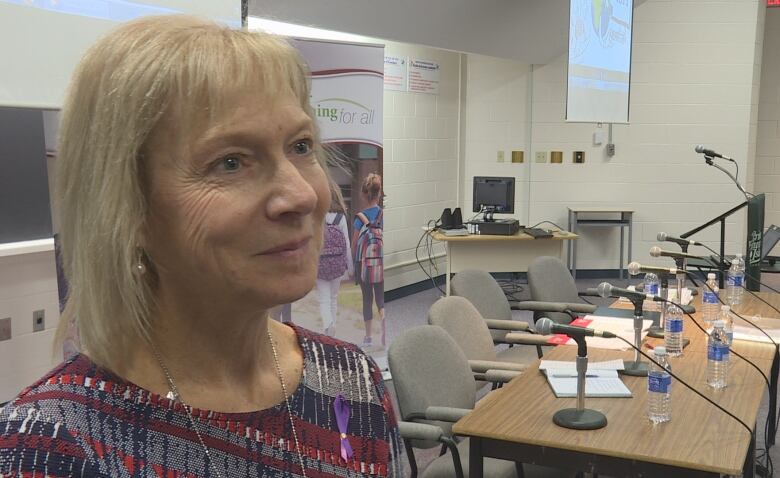Why P.E.I. did better in PISA assessment
'This hasn't happened overnight': Education officials explain 'system overhaul' that led to improvements

Two changes aroundstandardizedtesting for students have impacted the results of aninternational assessment for P.E.I. say education officialshow students are taught material and who is taking the test.
Programme for International Student Assessment (PISA) tests 15-year-olds in reading, math and science and is given out in more than 72 countries around the world.
- 'More work to do,' says education minister on PISA test improvements
- BY THE NUMBERS | P.E.I. shows significant improvement in international student testing
"Over the last number of years there's been a tireless focus. One on collaborating with teachers and raising standards, two on targeting gaps and three would be the precision and the focus that we've had on quality instructional strategies," said Education Minister Doug Currie.
Identifying how students do well across the board

17-year-old student Kelly Sit agreed. She's seen a difference in the classroom with more one-on-one time with teachers. She is now in Grade 12 and wrote the test in Grade 10. She said the test was similar to what she had be learning.
What we've done very strategically is to help our teachers write really high quality, critical thinking assessment questions and then they would use those to measure how the students are doing.TammyHubley-Little,department of Education, Early Learning and Culture
"I did see that we get more personal time with our teacher so if we have problems we're able to converse with our teacher and consult with them and work on the problem solving and everything like that. And so I find that different, more different than is used to be," said Sit.
P.E.I. education officials have identified doing well in math and language arts helps students achieve across the board and have focused on those key areas said Tammy Hubley-Little, director of leadership and learning for the Department of Education, Early Learning and Culture.
Hubley-Little said that doesn't mean educators are teaching so students do well on tests.
"That would be a very low-level measure and we would call that recall where students have already seen an assessment question and then they would just repeat that, so that's very low-level and what we've done very strategically is to help our teachers write really high quality, critical thinking assessment questions and then they would use those to measure how the students are doing," said Hubley-Little.

Hubley-Little said the improvements are part of a "system overhaul" that's been going on for a number of years.
"This hasn't happened overnight. The work that's happened around instruction and assessment, particularly since 2008 when we introduced very strategic supports in our primary education level with coaching, literacy block, we had reader recovery introduced."
Change in how many took test
There was also a change in how many students took the PISA assessment and how they were chosen, although education officials say that wouldn't have affected the results.

Before, all Island studentsfollowing the regular curriculumtook the PISA assessment.
In 2015, a sample of 475 students took the test which falls in line with what happens in other provinces and countries.
Students in the randomsample size are identified by Statistics Canada. The province doesn't have anything to do with how students are randomly chosen.
Elizabeth Costa, manager of achievement and accountability with the Department of Education, Early Learning, and Culture, said that she has extra confidence in thevalidityof the PISA results because the group of students has done well in many otherstandardizedtests.
"We have seen their gains and their improvement over time We also saw remarkable gains in reading and mathematics," said Costa.
- MORE P.E.I. NEWS |'This is life or death': P.E.I. losing two oncologists
- MORE P.E.I. NEWS | 'Screen cutter' trial underway in Charlottetown












_(720p).jpg)


 OFFICIAL HD MUSIC VIDEO.jpg)
.jpg)



























































































